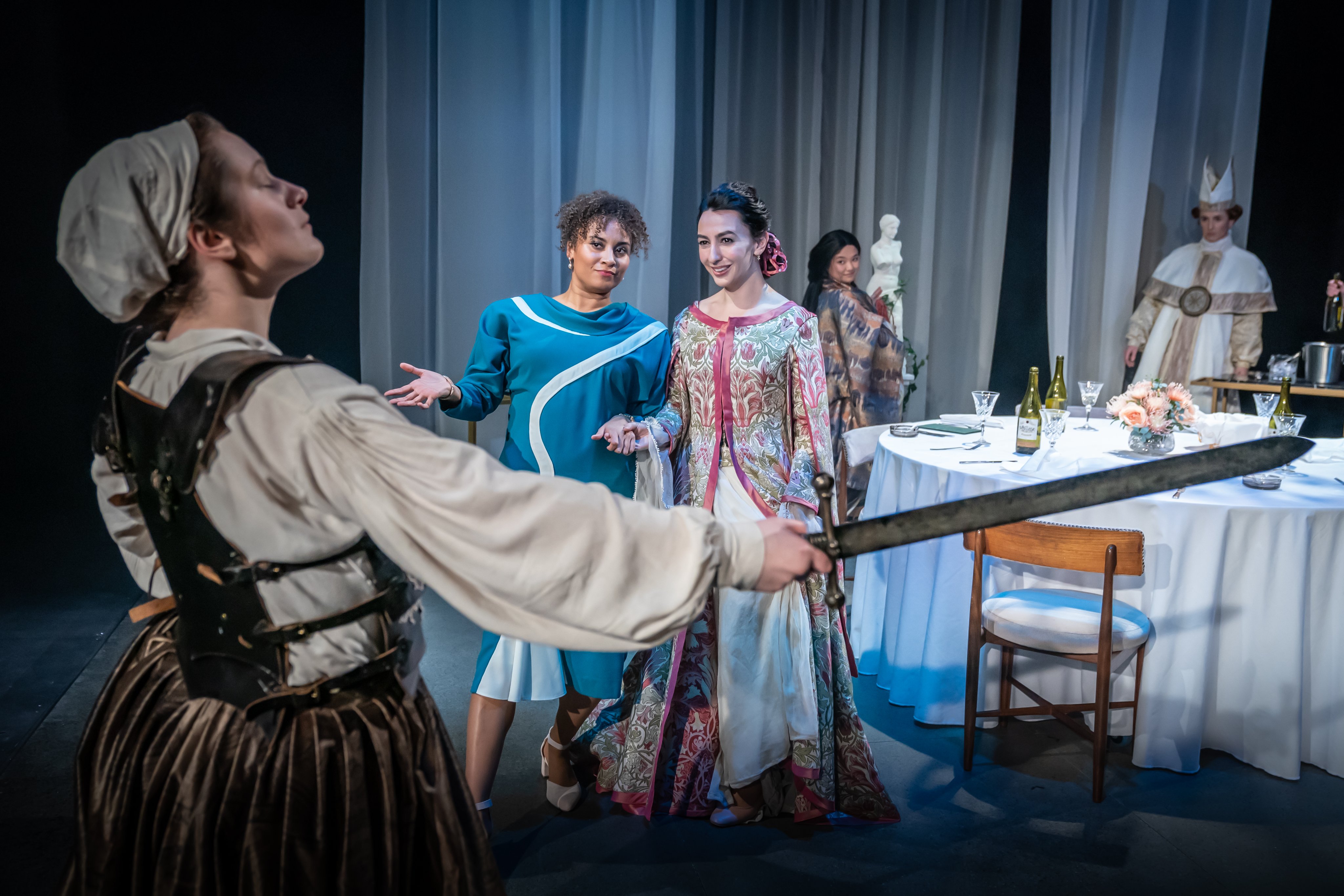Top Girls at Liverpool Everyman review – is a play’s longevity a blessing or a curse?
Suba Das’ revival runs until 25 March

I should say at the outset that as a middle-aged, middle-class white man, I am not exactly best placed to offer an opinion on the feminist credentials, gender politics or racial reconfiguring of this new production of Caryl Churchill’s most famous play. Consequently, I shall remain (I hope) on safer territory, focusing on areas in which I am qualified: namely, the dramatic qualities of the piece, its performers’ and creatives’ skills and the overall wisdom – or otherwise – of reviving this 40-year-old landmark of British theatre.
For there is little doubt that when it was first performed at the Royal Court in 1982, Churchill’s forensic dissection of capitalism and its impact on women, in particular, was groundbreaking. Its non-linear form, its all-female (in this case, female-identifying and non-binary) cast and, perhaps best known of all, its dinner-party scene featuring strong women from history and literature, all helped mark it out as one of the most important plays of the 20th century. It’s an accolade that has been repeated countless times in the intervening years.
All of which makes this production, directed by the Everyman’s new creative director Suba Das, the more bewildering for its… well, ordinariness. It’s perfectly well-presented, competent and entertaining. It looks great in a design by Ellie Light, is judiciously lit by Katharine Williams and luxuriates in a romping 80s soundtrack.
It explores Churchill’s trademark overlapping dialogue to an almost annoying extreme and has some great lines delivered capably by a strong cast of nine, including last-minute stand-in Elizabeth Twells, who sweeps aside the potential hurdle of just two days’ notice to give a fine and nuanced script-in-hand performance. Other stand-outs include Lauren Lane’s imperious Pope Joan, Saffron Dey as immature teenager Angie, and Tala Gouveia and Alicya Eyo as sisters divided by a common upbringing.
But if the original was all about the power and emotion of women finding a voice in the teeth of the patriarchy, this production somehow manages to sidestep both elements in its determination to make a point. There’s been much fanfare from the theatre about the play’s relocation to the Liverpool suburb of Toxteth, which gained notoriety in the early 80s for its riots, but precious little in the show itself to interrogate that new idea to any dramatic effect. Similarly, the production’s quiet efficiency and well-drilled interactions ultimately drown out any capacity to move the audience in any significant way.
Perhaps the real problem lies with the play’s longevity: it has become a period piece. Rather like Abigail’s Party, which defines the previous decade like no other production, it’s hard to escape the thought that Top Girls has become so indelibly mired in its time that it’s starting to feel – dare I say it? – dated.
Its messages of female empowerment, socialist struggle and the real definition of success are as relevant as ever. But instead of a polite and well-behaved production, you can’t help thinking that what they really need is a soaring, towering rebel yell.












